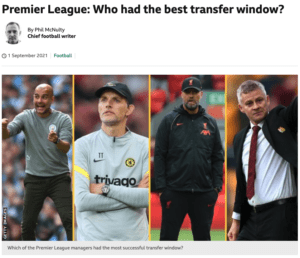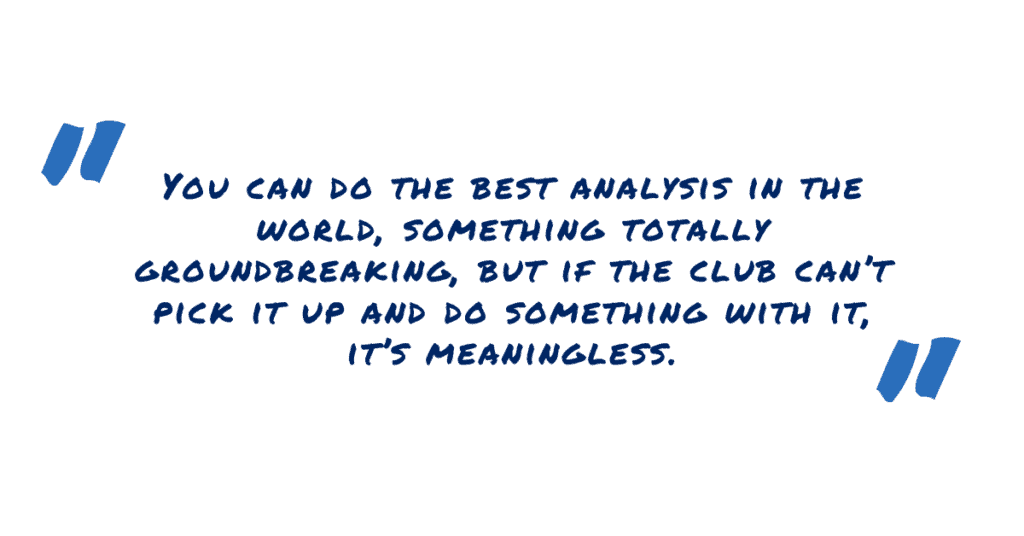After raising $200 million in its Series F funding round last month, WHOOP is now valued at $3.6 billion. If this doesn’t convince you of the enormous value the industry now places on data, nothing will. And if you consider the partnership between Super League, Sky Sports and Catapault to deliver real-time player GPS stats to fans at home or LaLiga’s creation of a whole new organization specifically to help the industry focus on digital, it’s clear the data dash is going on at the industry-level, too.
But elite sport’s rush for information shouldn’t confuse knowledge for intelligence. Plenty of people are spending vast sums of money on data, but the results aren’t breaking along those same lines. I think this is because people are assuming that simply having information – knowledge – is the path to performance. They’re following the old logic that knowledge is power.
But knowledge isn’t power – intelligence is. Understanding this distinction is what makes the difference.
Knowledge Isn’t Power
Knowledge is a collection of information. Intelligence, however, is the ability to translate the most important pieces of information into the most consequential actions – actions that further your goals. It’s not just about having data; it’s about leveraging it to affect things you care about. As Sunderland’s head of data and analysis James Young sums up:
It’s telling that Young sees his role as “translator between what is a complex and nuanced level of analysis and turning that into something digestible and relatable for the coach to implement.”
This is the power intelligence brings, and clubs that lack the understanding or expertise to wield it are essentially just burning vast amounts of money with little guarantee of any return for it. The transfer window is a particularly dangerous time for these organizations.
Without Intelligence, Clubs Will Throw Good Money After Bad
The Premier League clubs spent more than £1bn last summer during the transfer window, with Arsenal spending more than £100 million to stay at the league’s bottom after the first three matches. This raises the prospect of nightmare scenario for a club that doesn’t get the knowledge vs. intelligence distinction right.

It goes like this: say it’s two months into the season, and after spending millions, the club learns it got it wrong during the transfer window. They acquired certain players based on knowledge of their capabilities, but it’s just not translating to success on the pitch. So they decide to shell out even more money for different talent, hoping for better outcomes. But if they go about it in the same way, relying on knowledge of player’s attributes rather than deep understanding of the club’s most consequential needs and opportunities, they’ll run the risk of repeating the same mistake. They’ll throw good money after bad on the wrong talent again.
Bloody awful, but this is precisely the scenario that some clubs could land themselves in if they don’t learn that knowledge isn’t power, intelligence is.
Invest in Intelligence Partners That Can Handle Astronomical Amounts of Data
Without investing wisely in the tools and expertise that can help make sense of their exploding data sets, clubs will get hit with an enormous opportunity cost on talent acquisition: the players they really needed are already gone and the games where they would have truly mattered are over.
So what’s to be done? The solution is partnering with an organization that builds highly configurable, specialized tools and can pair them with performance experts to sift the massive amounts of data clubs now confront. Essentially, an organization that knows knowledge isn’t power, intelligence is.
I’ll be sharing thoughts on sport’s most impactful developments and news on an ongoing basis. I welcome your feedback on Twitter or at stephen@kitmanlabs.com.




 The Loughborough Sport Athletic Department will now be able to integrate all medical and performance data into a single operating system.
The Loughborough Sport Athletic Department will now be able to integrate all medical and performance data into a single operating system.